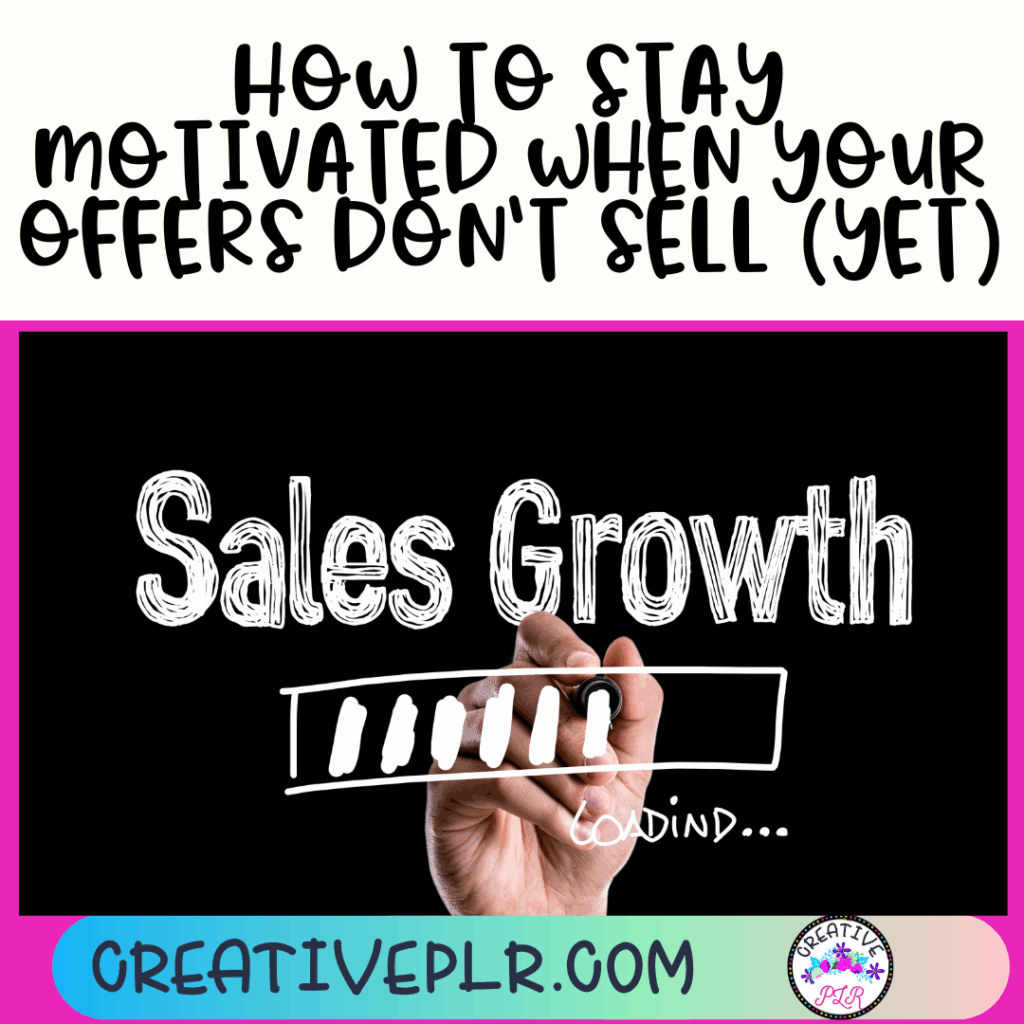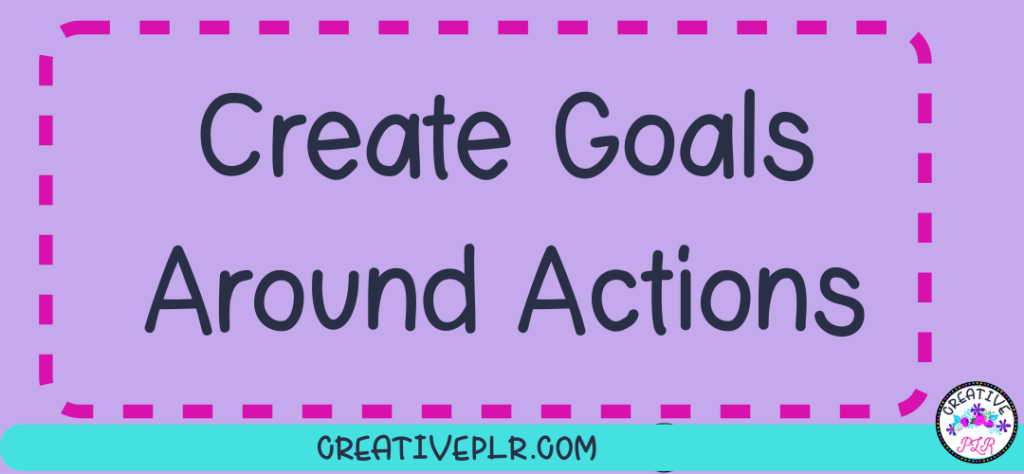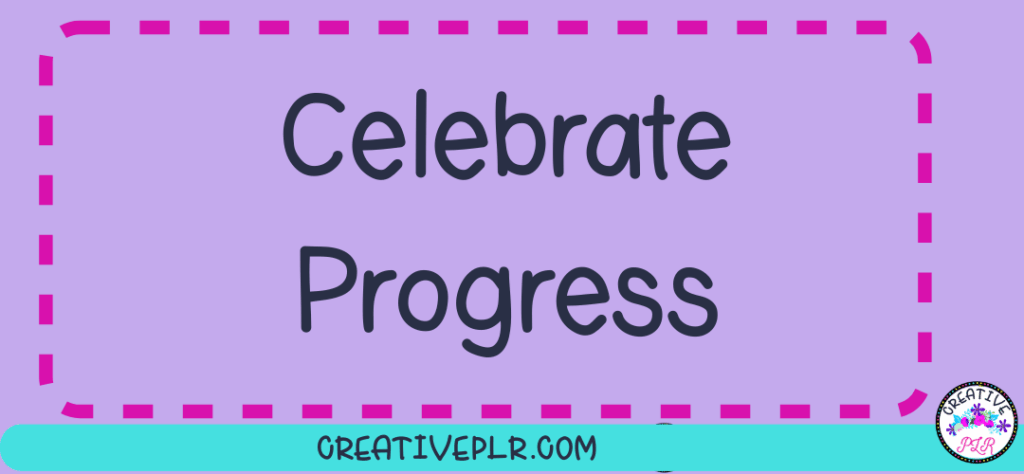You put countless hours into building an offer and stay motivated knowing the offer is great. You wrote, designed, emailed, and posted. Yet the sales notifications aren’t coming in. It feels personal, but it isn’t. Early sales struggles are a rite of passage for nearly every online entrepreneur. If your hard work hasn’t led to instant buyers, take a deep breath. You’re not seeing failure; you’re experiencing one step in a larger process.

Setbacks shake your confidence, but they don’t mean you’re headed for defeat. The real difference between thriving and struggling entrepreneurs often comes down to how they stay motivated and keep improving—especially when the cash register is silent.
In this post, you’ll learn why offers often don’t sell right away, the common mistakes that keep entrepreneurs stuck, and the habits you need to stay motivated and grow your business during tough sales periods.
Why Your Offers Might Not Be Selling Yet
When days or weeks go by without sales, your confidence can take a hit and it is difficult to stay motivated. . But it’s not a sign your idea itself is worthless. Most offers struggle at first because so much can trip you up at the starting line.
Common reasons offers don’t sell right away:
- Audience trust is low. People buy from those they trust. They need more time and connection before opening their wallets.
- Messaging isn’t clear. If buyers are confusing your offer with someone else’s, or missing the value, messaging likely needs a tune-up.
- Product-market fit is loose. Sometimes, your audience just doesn’t need what you’re selling, or you’re not speaking directly to their problem yet.
According to an article on Medium, early sales are about testing and learning, not perfection and big wins. Setbacks at this stage are normal, and every successful business owner has handled failed launches.
Common Early Mistakes Online Entrepreneurs Make
Many online business owners trip up right out of the gate by falling into these traps:
- Not testing with a real audience: You perfect your product in isolation, then get surprised when strangers ignore it.
- Ignoring feedback: Those who do see your offer may offer golden feedback, but entrepreneurs skip surveys or honest reviews.
- Rushing to market: Launching before you’ve built any email list or audience can mean shouting into the void.
- Focusing only on the product: Forgetting to build relationships, share stories, and seed trust.
Seven common issues that can block sales, including lack of market need and unclear messaging. Spotting these mistakes early helps you course-correct.
What Slow Sales Really Mean About Your Business
Slow sales often feel like a verdict on your potential. They aren’t. What they actually tell you is where you need to focus next. Early feedback is data, not defeat. It shows you where your offer needs work, or where you need to communicate more clearly.
And include in that data what the economy is doing. Depending on the niche, people may be more selective about buying than other times. Pricing of products is also a variable that may need work. An entrepreneur with a large email list may be able to sell a product that is higher priced than someone who is just starting out.
If you look at trends (by looking at the emails you receive) you will notice when the economy is tight there are more flash sales, more discounts, coupons and offers that are lower priced. So pricing your own products becomes a juggling of several variables.
Think of this stage as a workshop, not a win-lose game. The first buyers are testers, and their insights are clues to your next step. Instead of thinking, “My offer’s not working,” try thinking, “What can I learn from what isn’t working yet?” Even Forbes recognizes slow sales as a growth phase, not a death sentence.
How to Stay Motivated Even When You Are Not Making Sales
Staying motivated when your bank account isn’t growing can feel like running through mud. But grit and creative strategies can keep you going. Here’s how:
Set Realistic, Progress-Based Goals
If you focus first and only on dollars, slow weeks sap your drive. Instead, stay motivated by creating goals around actions and milestones. Track what you can control, such as:

- Publishing one valuable blog post a week.
- Reaching out to three new potential customers each day.
- Collecting and reviewing feedback from early audience members.
- Growing your email list by a set number each month.
This approach puts progress in your hands, instead of leaving your self-worth up to unpredictable sales numbers. Success is now “Did I do what moves me forward today?”, not “Did I hit a magic number?”
Find Community and Support
Entrepreneurship can feel isolating, especially during slow patches. It’s easy to believe you’re alone in your struggle. You aren’t.
Seek out groups, online forums, or masterminds filled with people facing the same hurdles. Honest conversations and advice from peers who get it can boost your spirits and show new angles on your current challenge. Places like a16z’s founder advice page share stories of how hard early sales are for everyone. Having even one person on your side makes all the difference.
Benefits of Entrepreneur Communities
Celebrate Small Wins and Track Your Progress
Motivation thrives on recognition. Take time to notice every sign of progress, no matter how tiny. Welcome a new email subscriber. Note a genuine thank-you message. Publicly acknowledge each test you run, no matter the results.
Keeping a simple daily or weekly record of these moments rewires your brain to focus on action and growth, not just revenue. Progress is rarely linear—sometimes the smallest wins set the stage for huge breakthroughs later.

If your offers aren’t selling yet, you’re in good company. Every online entrepreneur faces this hurdle early on. The difference between quitting and succeeding usually comes down to mindset and habits.
Slow sales aren’t the end. They’re valuable feedback. They guide you to improve your message, refine your offer, and build true connections. Count the wins you can control: your actions, your growth, and the trust you build one person at a time.
Stay connected, keep learning, and admit when you need help. Early setbacks are only learning experiences—the next step in your success story. Don’t quit before the magic happens. Adjust, ask for feedback, and take action. The journey is just getting started.